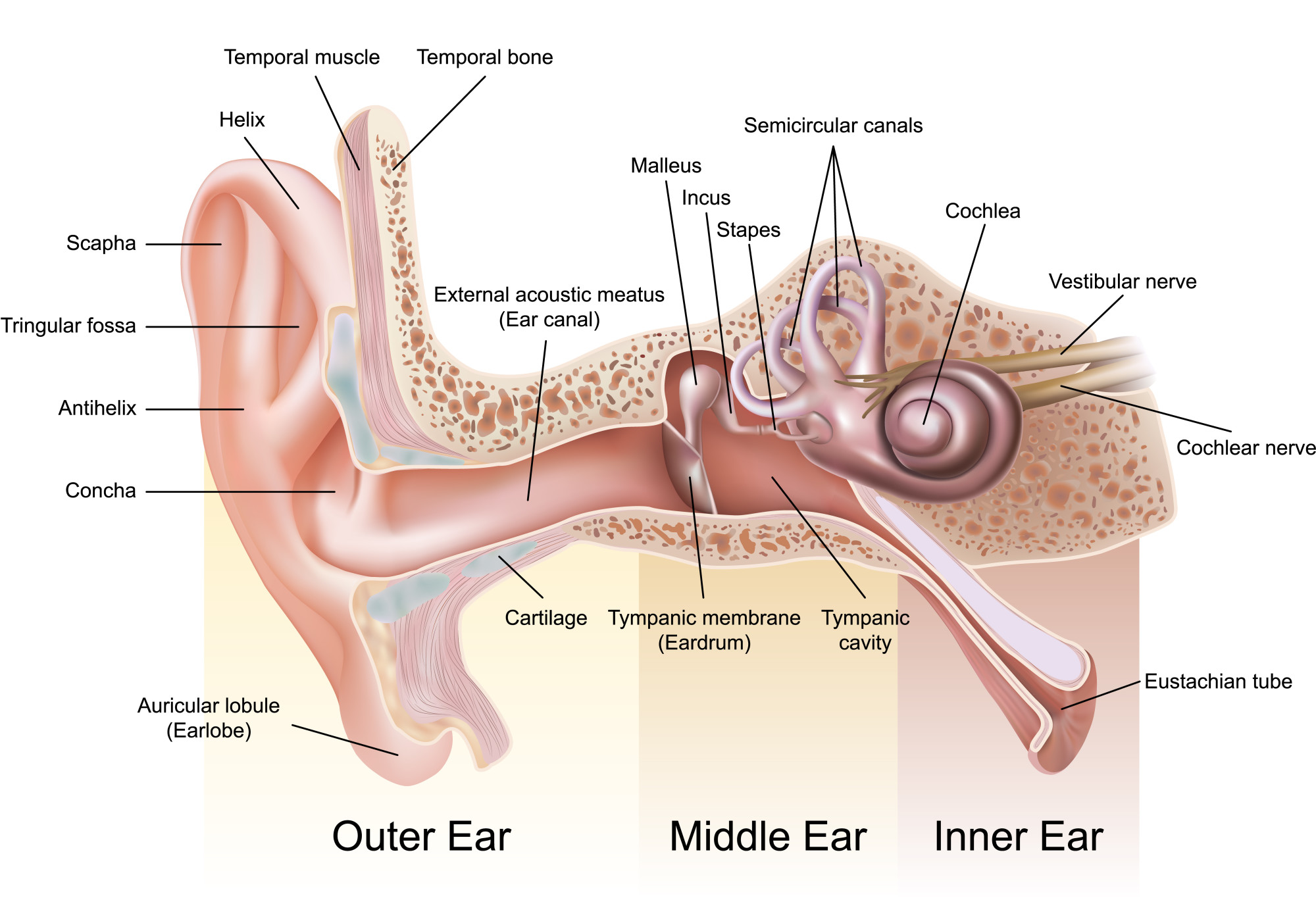
At Thompsons Road Physiotherapy we have a special interest in treating people with vestibular problems. These include symptoms of vertigo (a sense that you are moving or the environment is moving, usually spinning or swaying), nausea and a sense of imbalance. Most people have very little idea of how the vestibular system works.
The vestibular system is located in the inner ear in a compartment and sits next to the cochlea (the sensory organ involved in hearing). It is made up of 3 semicircular canals which are filled with fluid, which moves as you move, and in turn helps you sense your orientation in space – acting a bit like a carpenter’s level but in 3D.
The vestibular nerve which passes from the vestibular system to the brain is constantly sending messages to the brain about where your head is in space. If you then turn or bend your head to the right, the messages from the right vestibular system increase and from the left vestibular system decrease which tells your brain to bring your head back to centre. If a person without symptoms stands with their feet together and eyes closed they feel a slight sway. It is the vestibular system that detects this movement of the head and brings you back to centre thus maintaining your balance.
If one side is not working properly, for instance the right side, then the brain receives incorrect messages from the right vestibular system whilst it receives the correct messages from the left vestibular system, which the brain then perceives and interprets as if you are actually spinning or moving. This is what we call vertigo.
There is also a link between the vestibular system in the ears and the eyes. This is the vestibular ocular reflex. This works with movement of your head causing your eyes to move in an equal and opposite direction maintaining what we call your gaze stability. If you look at something and turn your head to the left, the eyes will move to the right. If you bend your head down the eyes will move up.
Your gaze stability gives you the ability to move your head and body while keeping focus on things around you, so that they continue to appear still. Without this working properly when you are moving such as walking, things look like they are bouncing around or the ground feels unstable. This gives you a sense of imbalance and can also result in nausea, or cause falls. It is also the reason why you can have unusual eye movements when the vestibular system is not working properly.
How can physiotherapy help with vestibular problems?
We start with a comprehensive assessment – to identify what is contributing to your vertigo, dizziness and imbalance. Then we provide customised treatment:
- Specific movements to treat blockages in semicircular canals
- Gaze stability exercises – training head movements whilst keeping the eyes in focus
- Exercises to desensitise movements that provoke your symptoms (habituation)
- Balance re-training exercises
- General fitness training to improve the ease of everyday tasks
- Musculoskeletal assessment and treatment as required to help assist your movement and ability to balance
- Education to help you understand your condition and how to manage it
- Advice on keeping active and accessing balance classes, tai chi classes or other local community based exercise programs
- Communication with your GP and or specialist to outline our findings and outcomes of rehabilitation
- Follow up. We are genuinely interested in how you recover and manage in the next week, month, year and beyond
Common causes of vertigo and dizziness
- BPPV – Benign Paroxysmal Positional Vertigo
- Labyrinthitis
- Vestibular neuronitis
- Vestibular migraine
- Neck related dizziness
- Vestibular hypofunction
- Concussion
Fun Fact
At school we learnt that there are 5 human senses. The teachers were wrong! This is your 6th sense and is equally important to senses such as hearing and sight. As described above, without the vestibular system working properly you can feel awful with symptoms of vertigo, nausea, imbalance, fatigue and decreased concentration.
Blog article written by Jenny Beech, Senior Physiotherapist at Thompsons Road Physiotherapy.








